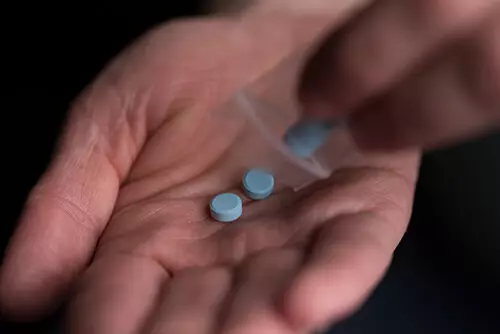One of the biggest threats to addiction recovery is relapse. Unfortunately, relapse is a serious issue, even after completing detox and rehab. However, exploring the specifics of addiction relapse rates highlights the problem. It can also emphasize the importance of relapse prevention training in addiction treatment facilities.
Addiction Relapse Rates
It may be shocking to see how many people relapse after completing addiction treatment programs. Although it’s entirely possible to leave rehab and begin sober living, roughly half of all patients struggle with future relapse.
By definition, relapse means using substances that initially led addiction development. For example, for alcoholics, this means drinking again. For someone with an opioid addiction, it means abusing heroin once more. However, relapse isn’t always the end of the road or a sign of failure.
Although relapse may be a serious obstacle, overcoming it is always possible. However, patients need to put forth substantial effort to prevent it. Additionally, staying positive is crucial. It’s important to understand that one slip up doesn’t mean recovery isn’t within reach.
Relapse Rates Are Comparable to Other Illness
Since the relapse rates for drug addiction and alcohol addiction are around half, many people believe rehab is pointless. However, this couldn’t be further from the truth. Interestingly enough, addiction relapse rates are actually quite similar to relapse rates for other illnesses.
For example, around half of people with type 1 diabetes deal with relapse and need further treatment. Additionally, about half of people receiving treatment for hypertension will relapse and need additional help. The threat of relapse doesn’t mean treatment isn’t the right choice for improving your health.
Relapse Rates are Highest One Month After Treatment
Relapse can occur at any point during the recovery process. However, the likelihood is much higher immediately after treatment ends.
More than half of those in recovery relapse within the first week after treatment. Closer to 100 percent of those who relapse do so within the first month of sobriety. Relapse prevention should always be a priority, but you should treat it with utmost importance the weeks following treatment.
Fighting Back Against Relapse at 1st Step Behavioral Health
At 1st Step Behavioral Health, every patient’s individual treatment plan places an emphasis on sustainable sobriety. This means learning methods for staying sober despite gnawing cravings and temptations. To prevent future relapse and substance abuse, therapies include:
- Life skills training
- Techniques for stress management
- Learning personalized coping mechanisms
- Family therapy
- Group therapy
Above all, addiction relapse rates are high, but with the right preparation, adhering to your recovery plan becomes much easier. At 1st Step Behavioral Health in Pompano Beach, Florida, you’ll have access to a custom treatment plan that focuses on achieving lasting sobriety. Call (855) 425-4846 and take your first step toward recovery today.
Jump to a Section
Call (855) 425-4846
